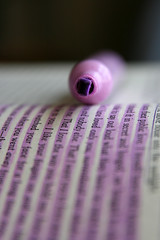FRBR, Lojban, and culling my book collection
 As a prerequisite for moving this spring (due to impending renovations by the new owners of our apartment building), my husband and I have been culling our book collection. The process of getting rid of books has, strangely enough, gotten me thinking a lot about Lojban, FRBR (the Functional Requirements for Bibliographic Records), and an endearingly dorky t-shirt I picked up in Library and Information Science grad school (which reads I love
As a prerequisite for moving this spring (due to impending renovations by the new owners of our apartment building), my husband and I have been culling our book collection. The process of getting rid of books has, strangely enough, gotten me thinking a lot about Lojban, FRBR (the Functional Requirements for Bibliographic Records), and an endearingly dorky t-shirt I picked up in Library and Information Science grad school (which reads I love Works Expressions Manifestations Items Books.)
Earlier this year I discovered Lojban, and was quickly taken with its methods for disambiguating language, particularly written language which can't benefit from intonation. In contrast to blunt instruments used for some degree of disambiguation on-line (emoticons, "j/k", "LOL", etc.), Lojban has an elaborate system of attitudinal and emotional indicators. A sentence like "there's a meeting" can be given entirely different shades, depending on the emotional marker. A'o indicates despair, aucu'i indicates indifference, i'e indicates approval, etc.
In the Lojbanic spirit, I began to consider the following: when I decide to keep a "book", and check it into LibraryThing (yes, I'll confess to checking in my own books to my own library catalog), what is it that I want to keep? And I thought of FRBR. My dorky t-shirt may dismiss each level of FRBR, and settle on simply loving "books", but given the many ways we use the word colloquially, it's quite ambiguous. There are examples for each of the FRBR "group 1 entities", where we've kept books primarily on those grounds:
Works
Many of the books we've kept are purely for the sake of the Work (a "distinct intellectual or artistic creation.") The information contained in Atlasi dialektologjik i gjuhës shqipe is useful, and we want to have access to it. If there were Manifestations available that were reasonably easy to use, and didn't require us hauling around a bound collection of paper, we would probably have gotten rid of it. As it stands, that's exactly what happened with our mass-market sci-fi and fantasy paperbacks. In the last few months, we both acquired Kindles. Realizing that A) we'd probably prefer to read those Works on the Kindle, and B) there is a Kindle (or Kindle-compatible) Manifestation of all those Works, we decided to get rid of books we'd previously been intending to keep.
Expression
Literature translated into languages other than English makes up the bulk of the books we've kept because of the Expression ("the specific intellectual or artistic form that a work takes each time it is ‘realized'".) We got rid of Harry Potter and the Sorcerer's Stone, but kept Harry Potter dhe guri filozofal (Albanian). Спутник Љубов (Macedonian) is going to fare better than Murakami's Sputnik Sweetheart if we run low on boxes. We've kept one English-translated Expression of a Work we can read in the original (this collection of poems by Anna Akhmatova) simply because the translation is awful; sometimes a failed Expression makes for an interesting Expression.
Manifestation
There aren't many books that we've kept because of the Manifestation. One of the only examples that comes to mind is Древненовгородский диалект. While PDFs identical to the book are available on-line, there's still something nice about flipping through the paper copy.
Item
 Most of the books that we haven't kept because of the Work itself are still on our shelves because of the Item ("a single exemplar of a manifestation. The entity defined as item is a concrete entity"). These are Items with sentimental value, ranging from birthday gifts to tattered companions from high school IB English. Many of the books that we're keeping because of the Work also have value as Items, due to some fond memory of their acquisition (like the massively heavy book we found at the bookstore of Vilnius University, after my husband snuck me past the security guard, and we lugged around all day through streets filled with Scots in kilts in town for some big soccer game that night, past a street fair with some guys dressed as Native Americans and "playing" South American pan flute music, and it was worth it because the content was so cool).
Most of the books that we haven't kept because of the Work itself are still on our shelves because of the Item ("a single exemplar of a manifestation. The entity defined as item is a concrete entity"). These are Items with sentimental value, ranging from birthday gifts to tattered companions from high school IB English. Many of the books that we're keeping because of the Work also have value as Items, due to some fond memory of their acquisition (like the massively heavy book we found at the bookstore of Vilnius University, after my husband snuck me past the security guard, and we lugged around all day through streets filled with Scots in kilts in town for some big soccer game that night, past a street fair with some guys dressed as Native Americans and "playing" South American pan flute music, and it was worth it because the content was so cool).
FRBR meets Kindle
As we've been phasing out paper copies of mass-market fiction in favor of reading on the Kindle, I started considering FRBR in the context of e-books, which seem to pose some non-trivial challenges for the model. I read e-books on my phone on the bus ride to work, and on my Kindle before bed and on weekends, but I have to download the files to each device separately. If I flash a new ROM on my phone, DRM restrictions don't allow me to use the files that are already on my phone's SD card-- I have to re-download those same files for the Kindle app to work. Have I then read two different Items on my phone, before and after I flash the new ROM? Typeface and page layout don't differentiate Expressions, but they should matter for Manifestations (think large print edition); if I decide to increase the text size on my Kindle, am I reading a new Manifestation even though it's the same Item?
Googling around, I came across an analysis of the situation, "How Many Books Dance on the Head of an e-Pin?":
[T]hat may be where we’re headed — toward a world that can’t presume items or manifestations, but only list expressions of works. Or perhaps we should evacuate some of the detail from “manifestation” in order to provide an appropriate silence on the issues involved.
I think there's some intuitive weight behind treating the Expression as the core form of a "book". I don't usually think twice about paying for different Expressions of a Work, except in cases where the new intellectual contribution is minor or not of interest to me, such as a new introduction. But I can't deny feeling some qualms buying a Kindle book when I already own a paper copy because my gut says "it's the same thing", even though my MLS says otherwise.
 Still, I think something useful would be lost by eliminating granularity beyond the Expression. A scanned PDF from a printed Manifestation and a Kindle Manifestation with the very same text differ, at the very least, in the fact that the PDF will have page numbers if they weren't cut off by the scanner, and the Kindle will not-- at least, not until a future software update, which can't come soon enough. Perhaps FRBR should adapt to cope with the fact that typography is malleable in many e-book formats, and changes in typography (and whatever takes the place of "pages") shouldn't affect the Manifestation. The Item, too, has value as an independent entity; my Item (file) of a PDF Manifestation can become corrupted, and I can see the desirability of being able to identify that corrupted file specifically. "Evacuating detail" from Manifestation to Expression isn't enough.
Still, I think something useful would be lost by eliminating granularity beyond the Expression. A scanned PDF from a printed Manifestation and a Kindle Manifestation with the very same text differ, at the very least, in the fact that the PDF will have page numbers if they weren't cut off by the scanner, and the Kindle will not-- at least, not until a future software update, which can't come soon enough. Perhaps FRBR should adapt to cope with the fact that typography is malleable in many e-book formats, and changes in typography (and whatever takes the place of "pages") shouldn't affect the Manifestation. The Item, too, has value as an independent entity; my Item (file) of a PDF Manifestation can become corrupted, and I can see the desirability of being able to identify that corrupted file specifically. "Evacuating detail" from Manifestation to Expression isn't enough.
At least for now, e-books are staying out of my LibraryThing, saving me from having to consider what level of abstraction I'd be cataloging. U'inai* I've got no shortage of printed Items to sort through and pack up in the next month and a half-- 2,450 of them, and counting.
* Lojban emotive marker for weariness.